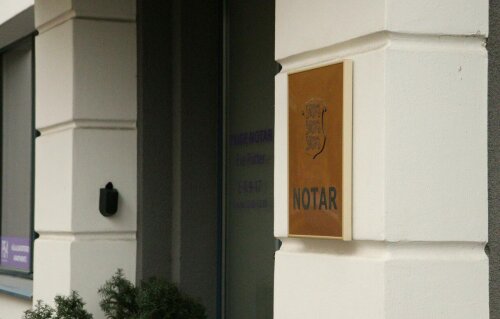Best Child Abuse Lawyers in Paide
Share your needs with us, get contacted by law firms.
Free. Takes 2 min.
Free Guide to Hiring a Family Lawyer
List of the best lawyers in Paide, Estonia
About Child Abuse Law in Paide, Estonia
Child abuse refers to any act or series of acts that result in harm, potential for harm, or threat of harm to a child’s health and wellbeing. In Paide, Estonia, as in the rest of the country, child abuse is taken very seriously and is governed by a combination of Estonian national laws and international agreements. The law covers various forms of abuse, including physical, emotional, and sexual abuse, as well as neglect. Estonia places an emphasis on protecting the rights of the child and ensuring safe environments for children through both preventive and punitive measures.
Why You May Need a Lawyer
Seeking legal advice is crucial when dealing with child abuse cases in Paide. Some common situations where legal help may be necessary include:
- Reporting suspected abuse to the authorities and understanding your legal obligations and rights
- Being accused of child abuse and needing a defense or clarification about the law
- Involvement in custody disputes where allegations of abuse impact decisions
- Advocating for a child’s rights in cases of suspected or confirmed abuse
- Understanding the procedures for state intervention and the removal of children from unsafe environments
- Navigating cross-border issues involving child safety if one parent lives outside Estonia
A lawyer can provide guidance, protect your legal rights, and help ensure the safety and best interests of the child are upheld.
Local Laws Overview
Child abuse laws in Paide, Estonia, fall under several national legislative acts, including the Child Protection Act, the Penal Code, and the Family Law Act. Key aspects to be aware of include:
- Obligation to report - Anyone who suspects that a child is being abused must report the suspicion to either the Social Insurance Board, child protection officials, or the police.
- State intervention - Authorities can intervene and place a child in protective custody if they are determined to be in danger or if their basic needs are not being met.
- Parental rights - Parental rights can be restricted or removed in cases where abuse or serious neglect is confirmed.
- Criminal liability - Perpetrators of child abuse can face criminal charges that may result in fines, imprisonment, or both, depending on the severity of the abuse.
- Support services - Victims of abuse have a right to psychological counseling, social services, and legal assistance.
- Confidentiality - Certain professionals are legally obliged to maintain confidentiality but are also required to report suspicions of abuse.
Frequently Asked Questions
What legally qualifies as child abuse in Paide, Estonia?
Child abuse includes physical violence, emotional harm, sexual misconduct, neglect of basic needs, and any action or inaction that threatens a child’s health or development.
Who is required to report suspected child abuse?
All adults, especially professionals such as teachers, healthcare workers, and social workers, are legally required to report suspected abuse to the authorities.
Can a child be removed from their home in suspected abuse cases?
Yes, if child protection officials determine that a child’s safety is at risk, they can initiate protective measures, including temporary removal from the home.
What happens after a report of child abuse is made?
Authorities will investigate the report, assess the risk to the child, and take necessary actions such as offering support services, starting criminal proceedings, or placing the child in care.
Are there penalties for failing to report child abuse?
Yes, failing to report known or suspected abuse can result in legal consequences, especially for professionals bound by mandatory reporting laws.
What support is available for child abuse victims?
Victims can access counseling, medical assistance, safe accommodations, and legal aid through government or non-profit organizations.
How are false accusations of child abuse handled?
False allegations are investigated thoroughly. Intentionally false reporting can result in legal action against the person making the false claim.
Can past abuse be prosecuted?
Yes, some forms of child abuse can be prosecuted years after the events, but there may be statutory time limits depending on the specific offense.
What should I do if I am wrongly accused of child abuse?
Seek legal advice immediately. A lawyer can help protect your rights and guide you through the investigation and any court proceedings.
How can I find a lawyer experienced in child abuse cases in Paide?
You may contact the Estonian Bar Association, consult with local legal aid offices, or seek recommendations from trusted organizations or social workers.
Additional Resources
If you or someone you know needs information or support related to child abuse in Paide, the following resources can be helpful:
- Social Insurance Board (Sotsiaalkindlustusamet) - Manages child protection services and interventions
- Estonian Children’s Welfare Union - Offers helplines and support for children and families
- Child Helpline (Lasteabi) - Provides 24/7 phone support for children and adults
- Police and Border Guard Board (Politsei- ja Piirivalveamet) - Handles criminal investigations and urgent interventions
- Legal Aid Offices - Offers free or reduced fee legal consultation to those who qualify
- Local government child protection officials in Paide
Next Steps
If you need legal assistance in a child abuse matter in Paide, Estonia, consider taking these steps:
- Immediately ensure the safety of the child involved
- Report the abuse or suspected abuse to local authorities or child protection services
- Document any evidence or concerns you have regarding the situation
- Contact a qualified lawyer with experience in child abuse or family law cases
- If you are accused, avoid making statements before consulting with legal counsel
- Utilize available support services for both emotional and practical assistance
Prompt legal help ensures your rights are protected and the best interests of the child are put first. If you are unsure where to start, reach out to local child protection officials who can guide you through the process.
Lawzana helps you find the best lawyers and law firms in Paide through a curated and pre-screened list of qualified legal professionals. Our platform offers rankings and detailed profiles of attorneys and law firms, allowing you to compare based on practice areas, including Child Abuse, experience, and client feedback.
Each profile includes a description of the firm's areas of practice, client reviews, team members and partners, year of establishment, spoken languages, office locations, contact information, social media presence, and any published articles or resources. Most firms on our platform speak English and are experienced in both local and international legal matters.
Get a quote from top-rated law firms in Paide, Estonia — quickly, securely, and without unnecessary hassle.
Disclaimer:
The information provided on this page is for general informational purposes only and does not constitute legal advice. While we strive to ensure the accuracy and relevance of the content, legal information may change over time, and interpretations of the law can vary. You should always consult with a qualified legal professional for advice specific to your situation.
We disclaim all liability for actions taken or not taken based on the content of this page. If you believe any information is incorrect or outdated, please contact us, and we will review and update it where appropriate.









